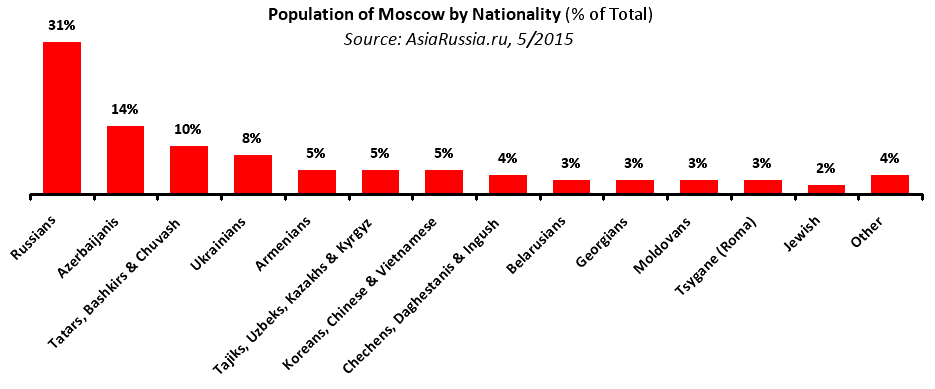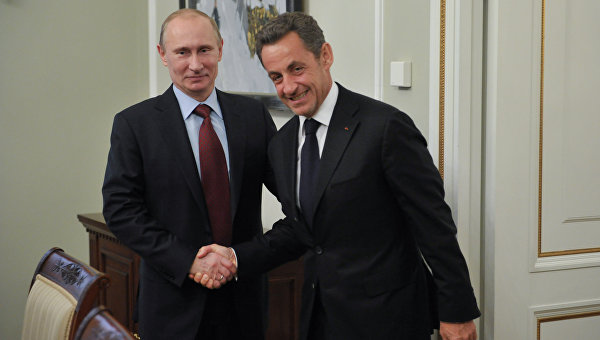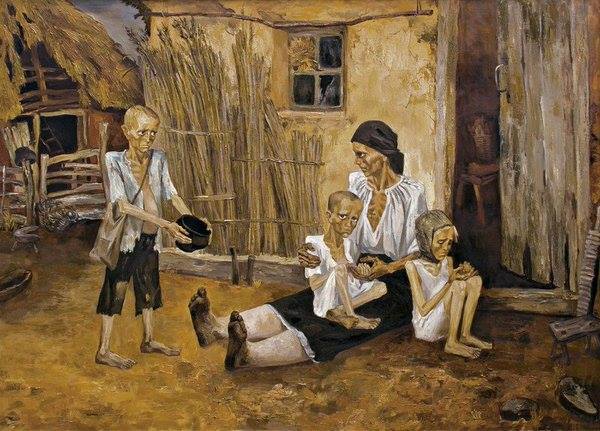Fewer than one in three residents of Moscow consist of ethnic Russians, according to a consultant to one of the Russian force structures cited by AsiaRussia.ru this past week. That figure is at odds with those of Rosstat
, but its appearance has major consequences for Russians, non-Russians and the Kremlin.
For Russians, always distrustful of official census figures, it is certain to be viewed as an indication that their country is becoming ever less Russian; for non-Russians, it will be viewed as showing just the reverse; and for the Russian regime, this figure represents a challenge to Vladimir Putin’s increasingly Russian nationalist policies.
Because Asiarussia.ru does not provide any background on the consultant who provided these figures or on how they were derived and because the portal is not an entirely disinterested party given its support for non-Russians and especially Muslims, it is impossible to know how accurate these figures are.
At the same time, however, there have been frequent indications that the official Rosstat numbers are inaccurate both because of the ways in which the information is gathered – many non-Russians in Moscow avoid enumeration – and processed – officials boost the number of ethnic Russians by folding in other groups into that category or by outright falsification.
Consequently, while these figures should be treated with caution, they may be useful as a corrective to some official claims; and they are beyond doubt important because of the ways in which they are going to drive the thinking of all the groups involved both in Moscow itself and in the Russian Federation more generally.
According to this source, of the 10,969,000, people in Moscow, ethnic Russians form 31 percent, Ukrainians eight percent, and Belarusians three percent, thus giving the Slavs as a group 42 percent of the total, still less than half of a city that many view as archetypically Russian.
Of nationalities from within the Russian Federation, Tatars, Bashkirs, and Chuvash, three nations from the Middle Volga, form 10 percent of the Russian capital’s population, this source says. (It notes there are more Tatars in Moscow than in Kazan.) Chechens, Daghestanis and Ingush form four percent; Tsygane (Roma) form three percent; and Jews form two percent.
Azerbaijanis form 14 percent of the total, and Armenians five percent. Georgians form three percent. Central Asians – Tajiks, Uzbeks, Kazakhs, and Kyrgyz – form five percent. And Asians from outside the former Soviet space – Koreans, Chinese and Vietnamese – constitute five percent of the total. All other nationalities make up the remaining four percent.






